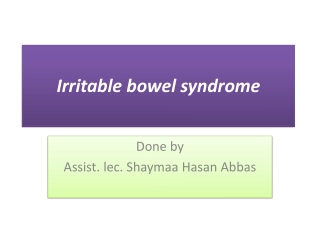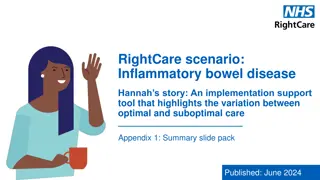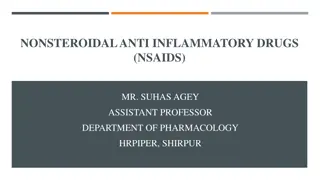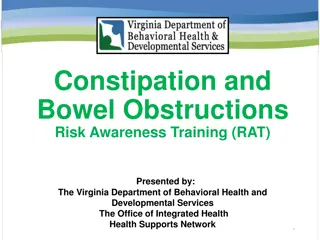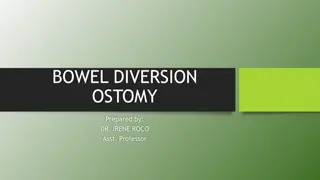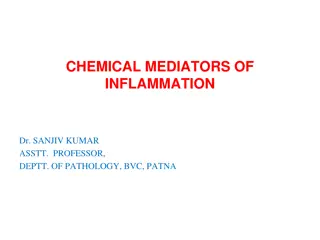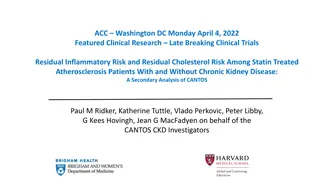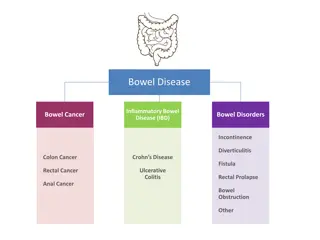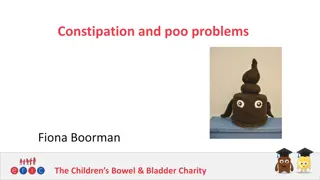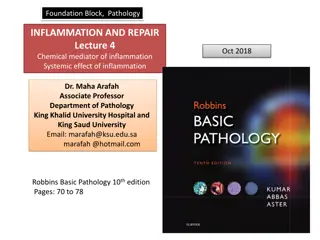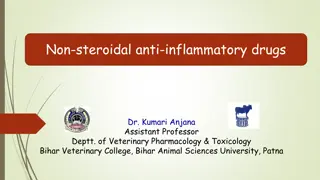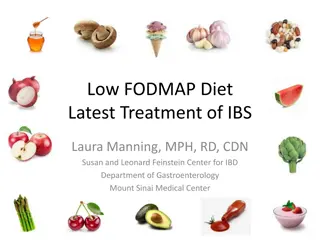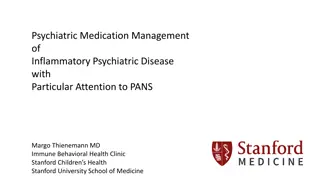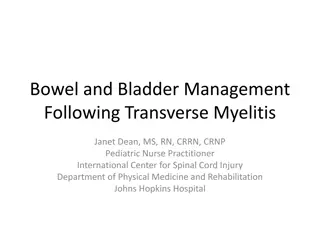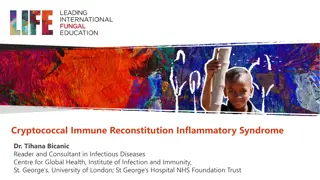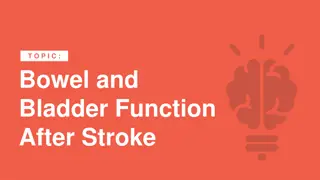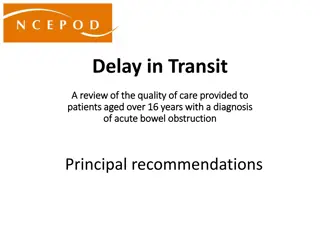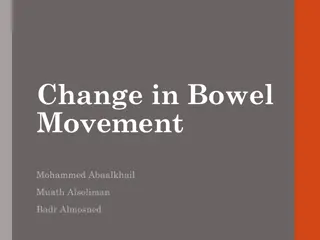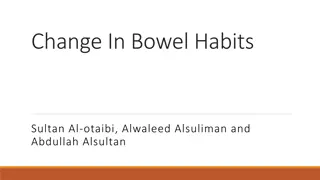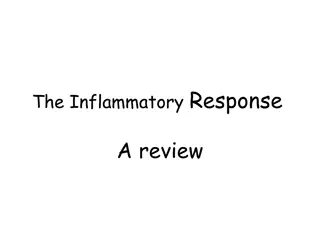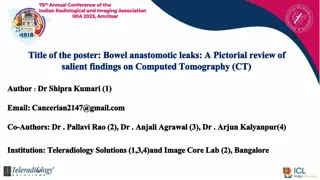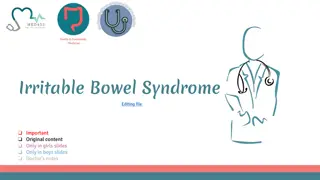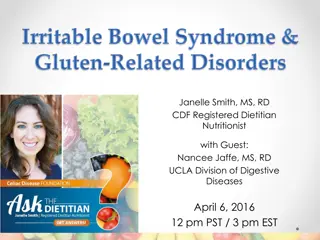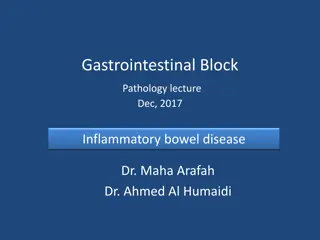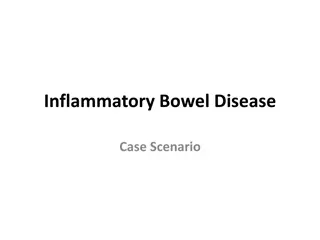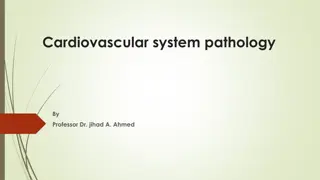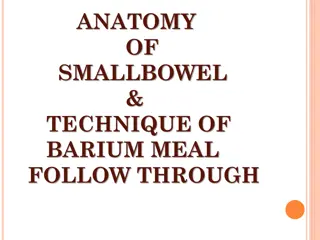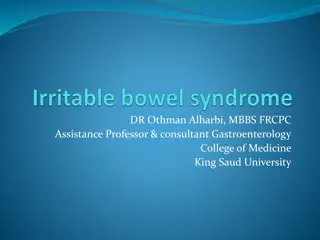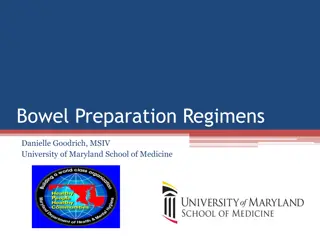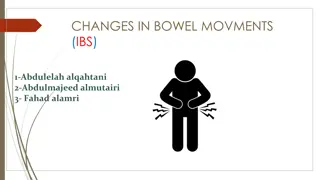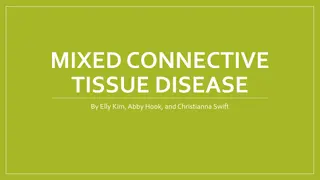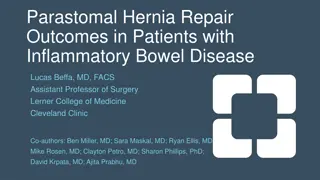Irritable bowel syndrome
Information on the aims of treatment, aggravating factors, treatment timescale, and non-drug and drug treatment options for irritable bowel syndrome (IBS). It also includes a list of relevant medications and their effects.
16 views • 39 slides
Buy Ketof Cough Syrup - silkroadblackpharmacy.com
Buy Ketof Cough Syrup is not suggested for people who are using other NSAIDs (for example, aspirin) or who have advanced renal, cardiac, cerebrovascular, or gastrointestinal illnesses, or who bleed easily. If you have liver, lung, or heart disease, high blood pressure, or inflammatory bowel disease,
2 views • 3 slides
Understanding the Natural History of Disease Development and Prevention
The natural history of disease development outlines the progression of a disease in an individual without intervention, from exposure to outcome. Learning objectives include defining prevention terms, understanding disease severity, prevention levels, and intervention measures. Studying disease prog
4 views • 16 slides
Hannah's Struggle with Inflammatory Bowel Disease: A Journey of Challenges and Lessons
Hannah, a vibrant young woman with a bustling social life and active routines, experiences a series of setbacks in her battle with Inflammatory Bowel Disease (IBD). Her journey highlights the importance of timely diagnosis, access to proper care, and comprehensive support services to manage the cond
0 views • 9 slides
Understanding Nonsteroidal Anti-Inflammatory Drugs (NSAIDs) and Their Pharmacology
Nonsteroidal anti-inflammatory drugs (NSAIDs) are a class of analgesic, antipyretic, and anti-inflammatory medications that work by inhibiting prostaglandin synthesis. They provide relief from pain, reduce fever, and combat inflammation through various mechanisms. Aspirin, a commonly used NSAID, irr
0 views • 21 slides
Understanding Constipation and Bowel Obstructions Risk
This training program by The Virginia Department of Behavioral Health and Developmental Services focuses on defining constipation, identifying causes and complications, recognizing bowel obstructions, and understanding signs and symptoms of fecal impaction. Caregiver recommendations and the roles of
0 views • 26 slides
Understanding Bowel Diversion Ostomy: Definition, Classification, and Management
Bowel diversion ostomy involves creating an opening in the gastrointestinal tract to divert and drain fecal material. This summary covers the definition, purpose, classification (permanent vs. temporary ostomies, types of intestinal ostomies), management, assessment, and changes associated with osto
0 views • 14 slides
Understanding Non-Steroidal Anti-Inflammatory Drugs (NSAIDs): Types and Classification
Non-Steroidal Anti-Inflammatory Drugs (NSAIDs) are a diverse group of medications with analgesic, anti-inflammatory, and antipyretic properties. They act primarily on peripheral pain mechanisms and vary in their selectivity of COX inhibition. This article explores the history, classification, and se
3 views • 16 slides
Overview of Chemical Mediators of Inflammation and Their Roles
Chemical mediators of inflammation act on blood vessels and cells to contribute to an inflammatory response. These mediators include vasoactive amines like histamine and serotonin, plasma proteases such as the complement, kinin, and clotting systems, and important inflammatory mediators like C3a and
1 views • 24 slides
Residual Inflammatory and Cholesterol Risks in Atherosclerosis Patients
In a secondary analysis of the CANTOS study, researchers evaluated the impact of residual inflammatory risk and residual cholesterol risk in a large cohort of atherosclerosis patients already receiving lipid-lowering therapy. Results showed the relative contributions of inflammation and cholesterol
0 views • 11 slides
Understanding Bowel Diseases and Their Management
Understanding the causes and mechanisms of bowel diseases such as inflammatory bowel disease (IBD), bowel cancer, diverticulitis, Crohn's disease, and more is crucial for effective treatment. Genetic predisposition, environmental factors, immune malfunction, age-related issues, and lifestyle choices
0 views • 5 slides
Understanding Constipation and Poo Problems in Children
This resource provides insightful information on constipation and related issues in children, including causes, symptoms, treatments, and the impact on bowel and bladder health. It covers various topics such as bowel actions, medications, normal bowel function, and the significance of recognizing an
0 views • 21 slides
Chemical Mediators of Inflammation: Understanding Sources and Effects
Chemical mediators of inflammation play a pivotal role in inducing specific events during acute inflammation. These mediators are produced in response to various triggers, including microbial products and host proteins, leading to a cascade of inflammatory responses. Understanding the sources and ef
1 views • 43 slides
Understanding Bowel Cancer: Facts, Prevention, and Awareness Efforts
Bowel cancer, also known as colorectal cancer, is a significant health concern, being the fourth most common cancer in the UK. It is essential to be aware of the symptoms, risk factors, and preventive measures associated with this condition. By maintaining a healthy diet, managing body weight, and s
0 views • 9 slides
Overview of Non-Steroidal Anti-Inflammatory Drugs (NSAIDs) in Veterinary Pharmacology
Non-steroidal anti-inflammatory drugs (NSAIDs) are a diverse group of medications with analgesic, anti-inflammatory, and antipyretic effects. They act primarily on peripheral pain mechanisms and have limited CNS effects. NSAIDs have a long history dating back to the use of White Willow bark, and the
0 views • 16 slides
Understanding the Low FODMAP Diet for Managing IBS
Irritable Bowel Syndrome (IBS) is a common condition that affects millions of people, with symptoms like abdominal pain, bloating, and altered bowel habits. The Low FODMAP diet is a promising approach to managing IBS by reducing certain types of carbohydrates that can trigger symptoms. This diet inv
0 views • 53 slides
Management of Inflammatory Psychiatric Disease with Focus on PANS in Pediatric Patient
Dr. Margo Thienemann discusses the psychiatric medication management of a 10-year-old boy with inflammatory psychiatric disease, particularly focusing on Pediatric Acute-onset Neuropsychiatric Syndrome (PANS). The patient presented with various symptoms including compulsions, mood swings, OCD, oppos
0 views • 45 slides
Bowel and Bladder Management Post Transverse Myelitis
Following transverse myelitis, there can be significant changes in bowel and bladder function, impacting storage, release, and coordination. Neurogenic bowel and bladder issues, differentiated by injury level, can lead to challenges in controlling sphincters and bathroom habits. Understanding these
0 views • 23 slides
Human Disease Symptom Network: Understanding Disease Relationships Through Symptoms and Genes
The Human Disease Symptom Network (HSDN) is constructed using a large-scale medical bibliographic records database to form a network of human diseases based on symptom similarities. By integrating disease-gene associations and protein-protein interaction data, correlations between symptom similarity
0 views • 37 slides
Understanding Irritable Bowel Syndrome (IBS) and Effective Solutions
Irritable Bowel Syndrome (IBS) is a common digestive disorder affecting 1 in 5 people, characterized by symptoms like abdominal cramps, bloating, changes in bowel movements, and fatigue. This condition has various triggers, including infections, stress, and certain medications. Managing IBS involves
0 views • 36 slides
Understanding Cryptococcal Immune Reconstitution Inflammatory Syndrome
Cryptococcal Immune Reconstitution Inflammatory Syndrome (C-IRIS) is a condition where rapid reversal of immunodeficiency triggers exaggerated inflammatory reactions in response to Cryptococcus antigens. It can manifest as either Unmasking IRIS or Paradoxical IRIS, with common CNS presentations incl
0 views • 10 slides
Understanding Bowel and Bladder Issues Post Stroke
Bowel and bladder incontinence are common after a stroke, often due to brain damage affecting control functions. Factors like mobility can exacerbate these issues, leading to discomfort, infections, and other complications. Managing incontinence involves assessing individual needs, recognizing signs
0 views • 10 slides
Review of Care for Patients with Acute Bowel Obstruction: Recommendations and Key Findings
This review assesses the quality of care provided to patients aged over 16 years with acute bowel obstruction. Significant delays were identified in the care pathway, from imaging requests to availability of operating theatres. Recommendations include prompt CT scans with intravenous contrast for de
0 views • 32 slides
Understanding Changes in Bowel Habits and Irritable Bowel Syndrome (IBS)
Changes in bowel habits can indicate underlying conditions like Irritable Bowel Syndrome (IBS), which affects millions worldwide. Learn about the symptoms, diagnosis, and management of IBS through practical examples and multiple-choice questions. Discover how psychological treatments like cognitive-
0 views • 58 slides
Understanding Change in Bowel Habits and Irritable Bowel Syndrome
This informative content covers topics such as the definition, etiology, and classification of Irritable Bowel Syndrome (IBS), the diagnosis and management of IBS, alarm symptoms to look out for, and when to refer patients to specialists. It also includes a role-play scenario for a focused abdominal
1 views • 33 slides
Understanding Pterygium: Degenerative or Inflammatory Change?
Pterygium, a common ocular surface lesion, has historically been considered degenerative due to factors like UV radiation exposure. However, recent research suggests an inflammatory component with cellular proliferative fibrosis and angiogenesis. This study presented at TOSCON 2024 delves into the h
0 views • 6 slides
Understanding the Inflammatory Response Mechanism
The inflammatory response is a crucial defense mechanism of the immune system. It comprises three lines of defense aimed at protecting the body from harmful pathogens. When a barrier is breached, such as by a splinter carrying bacteria, the inflammatory process is initiated. This includes the releas
0 views • 25 slides
Bowel Anastomotic Leaks: Salient Findings on CT - Pictorial Review at IRIA 2023, Amritsar
Anastomotic leaks post gastrointestinal surgery can have serious consequences if undiagnosed. This pictorial review presented at the 75th Annual Conference of the Indian Radiological and Imaging Association in Amritsar focuses on the importance of timely CT imaging interpretation for detecting and d
1 views • 10 slides
Understanding Irritable Bowel Syndrome: Pathophysiology, Symptoms, and Management
Irritable Bowel Syndrome (IBS) is a common gastrointestinal condition with uncertain pathophysiology involving factors like motility, hypersensitivity, inflammation, and gut microflora. Symptoms include abdominal pain, altered bowel habits, and bloating. Diagnosis is based on Rome IV criteria, and m
0 views • 9 slides
Understanding Irritable Bowel Syndrome (IBS), FODMAPs, and Gluten-Related Disorders
This webinar discusses the relationships between Irritable Bowel Syndrome (IBS), FODMAPs, and gluten-related disorders, covering topics such as the definition of IBS, its relationship with Celiac Disease and Gluten Sensitivity, the Low FODMAP diet, and functional gut disorders. Functional GI symptom
0 views • 24 slides
Understanding Inflammatory Bowel Disease: Crohn's Disease and Ulcerative Colitis
Inflammatory Bowel Disease (IBD) encompasses Crohn's disease (CD) and ulcerative colitis (UC), chronic conditions with immunologic basis. This article delves into the epidemiology, pathophysiology, and differences between CD and UC, highlighting clinical features, pathology, and complications like a
0 views • 42 slides
Inflammatory Bowel Disease Case Study: Diagnostic Challenges and Treatment Decision
A 56-year-old male with a history of inflammatory bowel disease presented with severe symptoms necessitating hospitalization. Despite steroid therapy, lack of improvement led to consideration of a total colectomy. Colonoscopy and biopsy results favored ulcerative colitis over Crohn's disease. This c
0 views • 31 slides
Understanding Inflammatory Disorders of the Cardiovascular System
Inflammatory conditions of the heart, such as pericarditis and myocarditis, can have various causes and manifestations. Pericarditis can present as fibrinous, purulent, or hemorrhagic, each with distinct characteristics and implications. Myocarditis, on the other hand, can result from infections lik
0 views • 9 slides
Understanding Small Bowel Anatomy and Barium Meal Technique
Exploring the anatomy of the small bowel, including the duodenum, jejunum, and ileum, as well as the technique of a barium meal follow-through. The small bowel is a convoluted tube extending from the pylorus to the ileocecal valve, averaging 6-7 meters in length. The duodenum, characterized by its C
0 views • 34 slides
Understanding Irritable Bowel Syndrome and Its Pathophysiology
Irritable bowel syndrome (IBS) is a common gastrointestinal disorder characterized by chronic abdominal pain and altered bowel habits. Despite the absence of organic causes, patients experience symptoms such as abdominal distention, bloating, and visceral hypersensitivity. The pathophysiology of IBS
0 views • 19 slides
Bowel Preparation Regimens for Colorectal Cancer Screening
Overview of bowel preparation regimens for colorectal cancer screening, emphasizing the importance of adequate bowel cleansing to enhance the effectiveness of colonoscopy. Highlights the impact of different dosing regimens on patient compliance, colon cleansing, and detection rates of small polyps.
0 views • 20 slides
Understanding Irritable Bowel Syndrome: Symptoms, Diagnosis, and Management
Define constipation and diarrhea, discuss the definition, etiology, and classification of IBS, explain how to diagnose IBS, list alarm symptoms and differential diagnosis, provide a management plan and follow-up, and recognize when to refer to a specialist. People with irritable bowel syndrome may s
0 views • 35 slides
Understanding Mixed Connective Tissue Disease (MCTD)
Mixed connective tissue disease (MCTD), also known as Sharp's syndrome, is a rare inflammatory rheumatic disease diagnosed through clinical evaluation, patient history, or special blood tests. Symptoms include overlapping connective tissue disease symptoms, with main cause being autoimmunity. It can
0 views • 7 slides
Outcomes of Parastomal Hernia Repair in Inflammatory Bowel Disease Patients
This study examines the outcomes of parastomal hernia repair in patients with inflammatory bowel disease, specifically comparing outcomes between those with Crohn's disease and ulcerative colitis. The research, conducted from 2012 to 2022, analyzes data from 392 patients, highlighting factors such a
0 views • 16 slides
Understanding Continence Care in the Community
Continence care in the community focuses on maintaining normal bladder and bowel functions to support individuals in managing their toileting needs effectively. Continence involves being aware of bodily signals, knowing when and how to void or defecate, managing clothing, storing urine or bowel move
0 views • 38 slides
